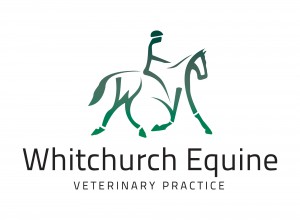A majority of my time is spent undertaking routine Health tasks such as vaccinating, teeth rasping, worming advice and dispelling horsey myths. Vaccinating is a cornerstone of Equine practice and is often undervalued by clients in it’s importance in their Animal’s Health plan and should not just be a necessary cost to allow entry to Competitions.
There are principally two major diseases we vaccinate horses and ponies against:
-
EQUINE INFLUENZA
-
TETANUS
though additionally animals can be vaccinated against:
- EQUINE HERPES
- STRANGLES
- EQUINE ROTAVIRUS
EQUINE INFLUENZA
Equine Flu is an infectious upper respiratory tract disease of horses. The virus invades the respiratory tract, damaging the lining, causing coughing, a high temperature, nasal and ocular discharges, enlarged lymph nodes, depression and loss of appetite. Coughing allows the virus to be shed further afield and infect new animals leading to outbreaks, locally and Nationally as recently in Australia and South Africa.
Clinical signs usually appear within 1-5 days of exposure to the flu virus and often last for 3-6 weeks. The virus needs to continually infect new hosts, which is achieved by coughing, allowing the rapid shedding of virus particles around neighbouring animals, particularly in the early phases of infection.
VACCINATION will protect your horse when encountering the Influenza virus by REDUCING or even preventing the CLINICAL SIGNS usually seen, allowing a FASTER RECOVERY and importantly REDUCE the SHEDDING of virus to other horses.
As with other Influenza viruses the Equine Flu virus is constantly evolving and changing which means the vaccine you use to protect your horse should be able to keep up protecting against the circulating strains.
Recent outbreaks in the UK are known to be of a strain called Florida Clade 2. Current guidelines of the World Organisation of Animal Health (OIE) recommend that vaccines should contain both Clade 1 and Clade 2 strains of the Florida sublineage.
We use the Equip vaccine which provides active immunisation against both the Clade 1 and Claude 2 isolates through it’s unique Immune stimulating Complex (ISCOM) technology.
Since the beginning of 2024 your Competition body (FEI, BSJA, BE, BD or Pony Club) may have changed their Vaccination protocols following advice from the British Equestrian Federation (BEF).
From 1st January 2024 the interval between primary vaccinations and the first booster vaccination has changed. Any horse or pony starting or restarting their vaccination course will now need to follow the following protocol. Previously correctly vaccinated horses and ponies do not need to restart their vaccination courses!
From 1st January 2024 new Vaccination guidelines:
| Intervals before 1st January 2024 | Intervals after 1st January 2024 | |
| 1st vaccination | ||
| 2nd vaccination | 21 to 92 days | 21 to 60 days |
| First booster | 150 to 215 days | 120 to 180 days |
| Subsequent booster | Within 6 months (+ 21 days) or 12 months depending on Competition body | Within 6 months (+ 21 days) or 12 months depending on Competition body |
